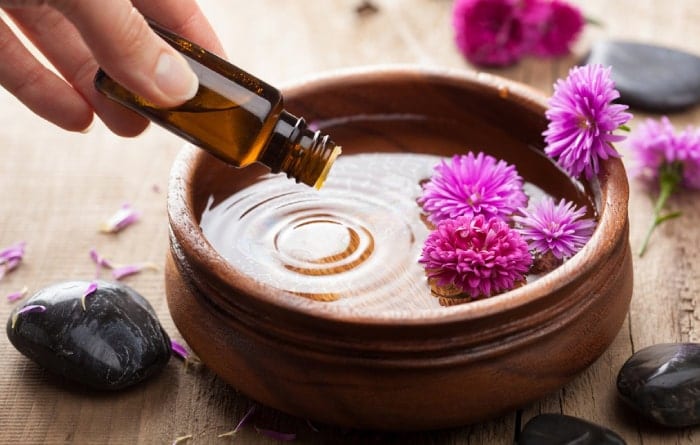Why Aromatherapy for End of Life?
The ancient art of Aromatherapy combines the therapeutic benefits of touch and smell, individualized just for you. Essential oils of plants and flowers are selected and used during the gentle manipulation of massage, in a room diffuser, or oils blended together in a wearable patch. All methods can be used to stimulate revitalization, relaxation, and/or re-balancing of the body and mind.
Essential Oils are the “blood” of the plant, functioning as the plant’s immune defense system. They provide each plant with its aromatic essence and are known to give the plant its “life force” by protecting the plant from disease and assisting the plant in its adaptation to the environment. Essential oils are inherently anti-fungal, anti-bacterial, anti-parasitic, anti-microbial, anti-viral and antiseptic. Essential oils are the most potent and concentrated extracts of seeds, fruits, wood, roots, leaves, flowers, and resins. Essential oils mainly help restore wellness and balance when applied to human senses. Essential oils are known to have incredible healthy mind and body benefits such as
- reducing depression
- reducing nausea
- reducing pain
- alleviating physical symptoms
- improving sleep patterns
- alleviating side effects of chemotherapy
- reducing stress and tension
- alleviating psychological distress
- promotes relaxation
- improving well-being and quality of life
- alleviates anxiety
We just started practicing Aroma-patch therapy here at Prairie Home Hospice and the results have been well-received so far. We have always utilized essential oils in our massages here (when requested) and we are finding that the results are very much the same when our patients use the aromatherapy patch. Inhalation of essential oils evokes an immediate olfactory response. As we breathe in, warm moist air carries tiny molecules of the oils through the nasal passages stimulating olfactory cells, which send impulses to the olfactory nerve and in turn to the limbic portion of the brain. That portion of the brain is responsible for our sense of smell, but also controls our hunger, mood, memories, and emotions.
There is a growing body of evidence that suggest aromatherapy is helpful in situations where the risks of emotional and mental distress exist. Hospice care in particular deserves a close look as patients often experience significant stress during the last few weeks or months of their lives. Increasingly, patients and caregivers alike are turning to aromatherapy. Some Essential oils that hold the best promise in helping reduce anxiety and depression are listed below.
- Bergamot Antidepressant/Strees Comfort
- Citrus Energy Formula
- Cedarwood Relaxing, Calming, Sedative
- Mint Muscle/Nerve Comfort
- Geranium Balancing Antidepressant
- Rosemary Memory Formula
- Lavender Relaxing, Calming, Sedative
- Chamomile Headache Comfort
- Neroli Uplifting, Calming
- Tea Tree Skincare/Itch Comfort
- Patchouli Relaxing, Sedative
- Lemongrass Mental Focus
- Pepper Reduces Pain
- Sweet Fennel Appetite Control
- Roman Chamomile Relaxing
- Eucalyptus Cough/Cold Comfort
- Rose Improves Concentration
- Ylang Ylang Reduces Systolic Blood Pressure
- Lemon Ginger Nausea Comfort
- Arnica Muscle and Joint Comfort


